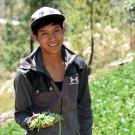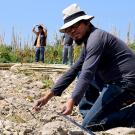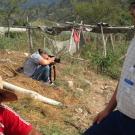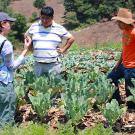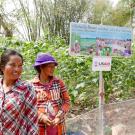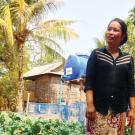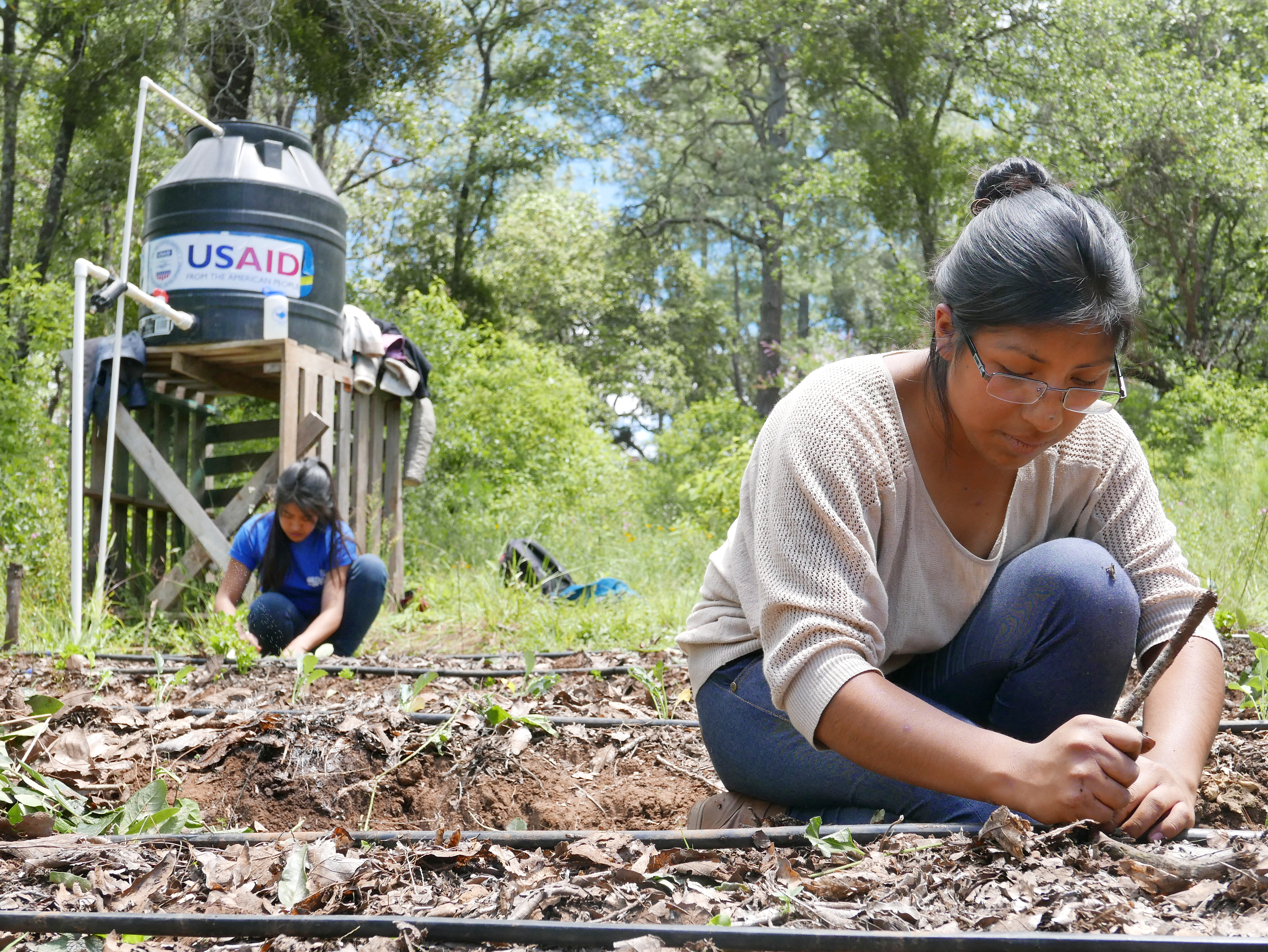
Also called MásRiego, this project develops and implements holistic, business-driven solutions to increase availability of weather resilient solutions while increasing inclusion. These activities and technologies include drip irrigation, conservation agriculture and improved water management, while addressing social inclusion, capacity, and asset building for all community members, especially women and youth, in Feed the Future zones of Guatemala.
Global weather change predictions forecast increased rainfall variability, which present traditional rain-fed agriculture with "out of season" rains and other water management challenges. As competition increases for water, practices such as conservation agriculture, rainwater harvesting, and drip irrigation will be increasingly important and sought after by smallholder producers.
A Horticulture Innovation Lab team is working to increase the use of drip irrigation, conservation agriculture and rainwater harvesting practices, where appropriate, in smallholder vegetable production systems in Guatemala. These practices produce vegetable crops for market and home consumption, while conserving natural resources upon which sustained crop production depends. These practices will enable smallholder farmers and youth to earn income from producing high-value horticultural crops in the face of weather change and changing rainfall patterns.
Project activities are designed to promote private sector development in horticulture while promoting small-scale commercial horticulture through increased use of efficient practices. The team is also developing the capacity of project partners, beneficiaries, and participants in other Feed the Future projects in implementing weather change resiliency strategies.

